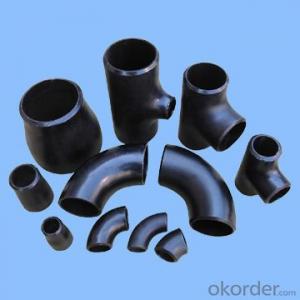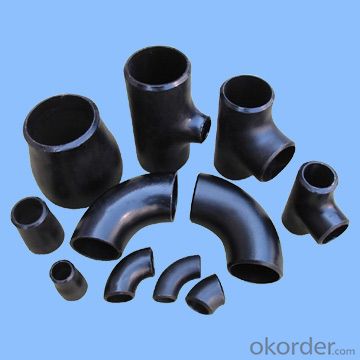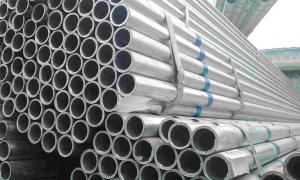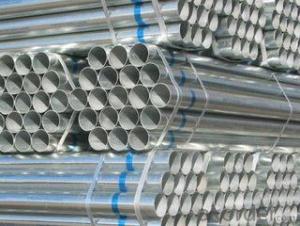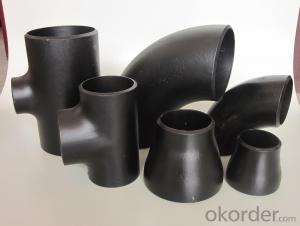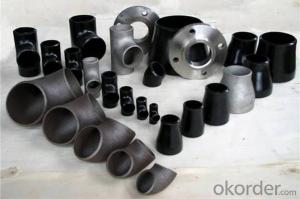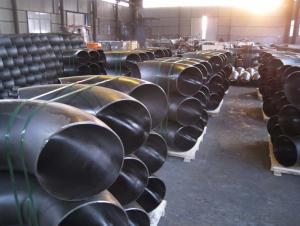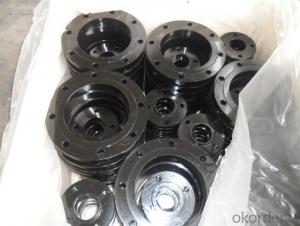CARBON STEEL PIPE FITTINGS ASTM A234 FLANGE - 24'' 26''
- Loading Port:
- Tianjin
- Payment Terms:
- TT OR LC
- Min Order Qty:
- 1 m.t.
- Supply Capability:
- 30000 m.t./month
OKorder Service Pledge
OKorder Financial Service
You Might Also Like
Specifications
1.we produce seamless steel pipe
2.size:48-219*4.5-45mm
3.ISO 9000 approved
4.Market:south/east Asia,Mid-east,South America
seamless steel pipe
Material J55 K55 N80 L80 P110.etc
Standard ASTM JIS
Usage conveying oil gas ,oil pipe line,pipe material collar,oil nature gas,
Packing wooden cases or wooden pallet ,export standard package
Others:Special design available according to requirement
Anti-corrosion available and high temperature resistence
Delivery time 30days
Payment term T/T L/C
Name | API oil casing pipe | ||||
Out Diameter | Wall thickness | Material | Thread | Length | |
in | mm | ||||
5 1/2 | 139.7mm | 6.20 | J55/K55/N80 | LTC/STC/BTC | R2 |
6.98 | |||||
7.72 | |||||
9.17 | |||||
10.54 | |||||
6 5/8 | 168.28mm | 7.32 | J55/K55/N80 | LTC/STC/BTC | R2 |
8.94 | |||||
10.59 | |||||
12.06 | |||||
12.06 | |||||
8 5/8 | 219.08 | 8.94 | H40 | S/L/B | 9 5/8R2 |
J55/K55 | S/L/B | ||||
10.6 | L80 | L/B | |||
12.7 | L80 C95 | L/B | |||
14.15 | P110 | L/B | |||
9 5/8 | 244.48 | 13.84 | J55 K55 | R2 | |
15.11 | L80 | L/B | |||
10 3/4 | 273.05 | 11.43 | J55 K55 | S/B/E | R2 |
13.84 | P110 | S/B | |||
15.11 | P110 | S/B | |||
11 3/4 | 298.45 | 12.19 | J55 K55 | S/B | R2 |
10.96 | J55 K55 | S/B | |||
13 3/8 | 339.72 | 12.19 | J55 K55 L80 | S/B | R2 |
10.92 | J55 K55 | S/B | |||
13.06 | L80 | S/B | |||
Coupling and thread can be required according to customer requirment
- Q: What is the dimensional stability of steel pipes?
- The dimensional stability of steel pipes refers to their ability to maintain their shape and size under different conditions and over time. Steel pipes are known for their excellent dimensional stability, as they are highly resistant to deformation, warping, and expansion or contraction caused by temperature variations or external forces. This stability is attributed to the inherent strength and rigidity of steel, making it a reliable choice for various applications where maintaining precise dimensions is crucial.
- Q: How do steel pipes handle high-pressure applications?
- Steel pipes are able to handle high-pressure applications due to their inherent strength and durability. They have a high tensile strength and are resistant to deformation under extreme pressure. Additionally, the seamless construction of steel pipes ensures that there are no weak points or joints that can compromise their ability to handle high pressures.
- Q: How to identify stainless steel pipe and steel pipe?
- Stainless steel (Stainless Steel) is referred to as the stainless steel, the resistance of air, steam, water and other weak corrosive medium or with stainless steel known as stainless steel; while the resistance to chemical corrosion (acid, alkali and salt chemical etching) corrosion of steel called acid resistant steel. Because of the difference in the chemical composition of the two, and make their corrosion resistance is different, ordinary stainless steel is generally not resistant to chemical medium corrosion, and acid resistant steel are generally stainless steel.
- Q: Are steel pipes suitable for nuclear power plants?
- Steel pipes are an ideal choice for nuclear power plants. This is because steel is a commonly used material in the construction of these plants, thanks to its exceptional mechanical properties, high strength, and durability. Various applications in nuclear power plants rely on steel pipes, including the transportation of cooling water, hot gases, and steam. The steel used in nuclear power plants undergoes careful selection and testing to meet strict safety regulations and quality standards. This is crucial because these pipes must have outstanding resistance to corrosion and high-temperature environments. They are exposed to harsh conditions such as high pressure, high temperatures, and radioactive materials. Moreover, steel pipes have a long lifespan and require minimal maintenance. This makes them a cost-effective option for nuclear power plants. They can endure extreme conditions, ensuring the plant's safe and reliable operation. Additionally, steel pipes can be easily fabricated, installed, and repaired, which is vital for the efficient functioning of a nuclear power plant. In summary, steel pipes are highly suitable for nuclear power plants due to their strength, durability, resistance to corrosion, and ability to withstand extreme conditions.
- Q: 304 stainless steel tube with the diameter of 25*2-3 is what mean
- This is according to the "water drawing standards" (GBT50106-2001) in 2.4.2-2 seamless steel pipe, welded steel pipe (straight or spiral seam), brass, stainless steel pipe, pipe diameter should be D diameter * thickness representation (such as D108 * 4 and D159 * 4.5); and the provisions of the habit of acting D with seamless pipe diameter.
- Q: How to perform nondestructive inspection of steel tubes
- Radiographic inspection (RT)One of the earliest nondestructive testing methods is widely used in the inspection of internal defects of metals and non-metallic materials and products, with a history of at least 50 years. It has incomparable unique advantages, that is to test the correctness, reliability and intuition of the defects, and the ray film can be used for the analysis of defects and as a quality certificate archive. But this method also has the disadvantages of more complicated equipment and higher cost, and should pay attention to the protection of radiation.
- Q: Can steel pipes be used for the construction of railway tracks?
- No, steel pipes are not suitable for the construction of railway tracks. Railway tracks require specialized rails made of steel that are specifically designed to withstand the heavy loads and constant wear and tear associated with train traffic. Pipes do not have the necessary shape, strength, or durability to serve as railway tracks.
- Q: How do you calculate the flow rate of water in steel pipes?
- To calculate the flow rate of water in steel pipes, you can use the equation Q = A × V, where Q represents the flow rate in cubic meters per second, A denotes the cross-sectional area of the pipe in square meters, and V represents the average velocity of the water in meters per second.
- Q: How are steel pipes used in the transportation of fluids?
- Steel pipes are commonly used in the transportation of fluids due to their durability, strength, and corrosion resistance. They are used in various industries, including oil and gas, water supply, and chemical processing, to transport liquids and gases over long distances. The seamless construction of steel pipes ensures a smooth flow of fluids, reducing friction and pressure loss. Additionally, their ability to withstand high temperatures and pressures makes them ideal for transporting fluids safely and efficiently.
- Q: What is the difference between steel pipes and fiberglass-reinforced pipes?
- The main difference between steel pipes and fiberglass-reinforced pipes lies in their composition and structural characteristics. Steel pipes are made of a durable metal alloy, typically carbon steel, which provides strength and resistance to high pressure and temperature. On the other hand, fiberglass-reinforced pipes are composed of a plastic matrix reinforced with glass fibers, making them lightweight, corrosion-resistant, and suitable for various applications. While steel pipes are commonly used in industrial settings, fiberglass-reinforced pipes are often utilized in sectors requiring corrosion resistance, such as chemical processing, wastewater treatment, and oil and gas industries.
Send your message to us
CARBON STEEL PIPE FITTINGS ASTM A234 FLANGE - 24'' 26''
- Loading Port:
- Tianjin
- Payment Terms:
- TT OR LC
- Min Order Qty:
- 1 m.t.
- Supply Capability:
- 30000 m.t./month
OKorder Service Pledge
OKorder Financial Service
Similar products
Hot products
Hot Searches
Related keywords
